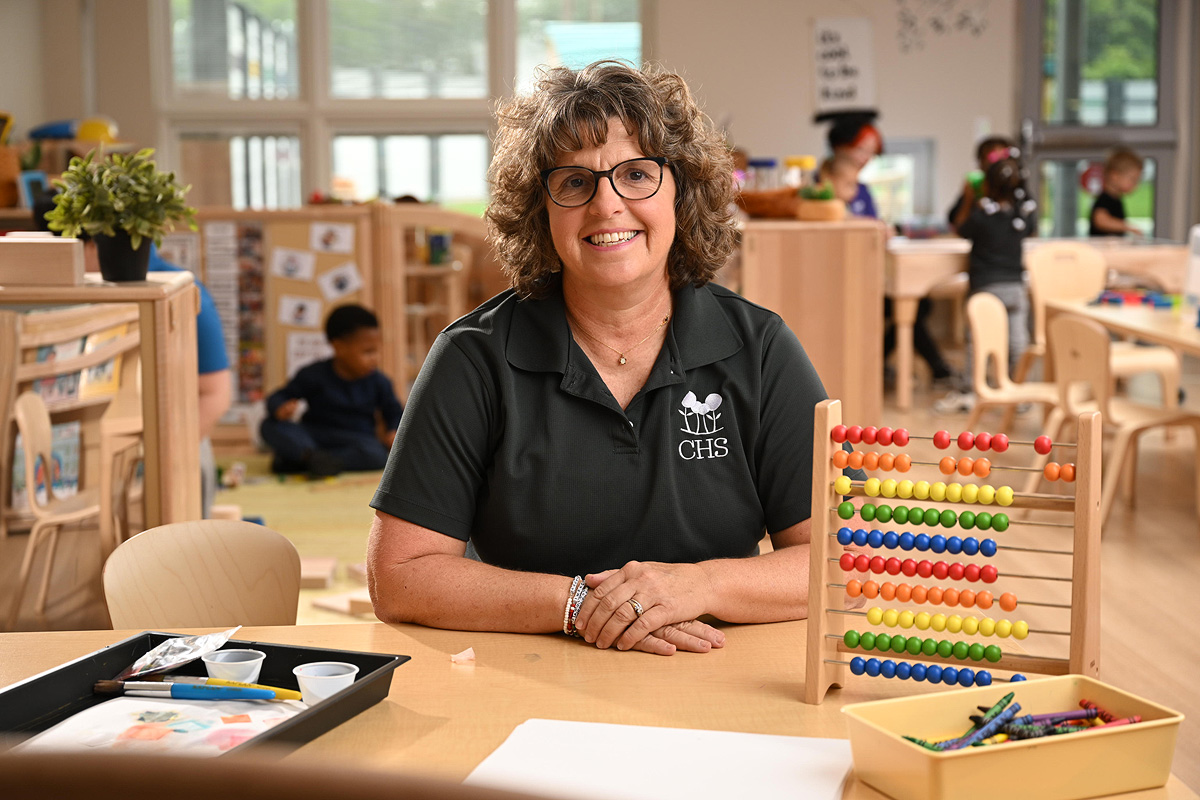Integrated Family Services and the Importance of the Two-Generation Approach

By Lindsay Knepp, Family Partnership Manager
Between Mother’s Day and Father’s Day, we are all reminded of the role that parents and families play as a child’s first support.
Having close, supportive relationships with parents, families, and caregivers boosts our effort to help children reach their goals and strengthens communication with their families.
During a CHS conference in March 2023, sessions emphasized the importance of integrated family services and home visits as a crucial practice by ECE practitioners across the field. In one of the breakout sessions, experts including Dr. Kathy Pillow Price of the University of Arkansas Early Care and Education Projects, Kerry Caverly of Parents as Teachers, and Malkia Singleton Ofori-Agyekum of ParentChild+ discussed the importance of family-focused services and especially home visits as a way to strengthen relationships and help model and coach caregivers at the heart of the family’s home environment.
Why Home Visiting?
Home visits are a valuable practice for ECE centers and providers as they allow educators and other practitioners the opportunity to observe and interact with the child and their caregivers at home, where they may feel more comfortable, rather than in a public environment of a school or ECE setting. There are many benefits that result from families having a deeper involvement in their child’s education especially at the ECE level, benefits which are long-lasting and profound.
Parents as Teachers, an organization that employs an evidence-based home visiting model to provide parent training on early childhood development, indicate that children of families who participate in home visiting programs enter kindergarten ready to learn and score higher on initiative, achievement, vocabulary, and social development measures, compared to their peers. Additionally, their research indicates that after this participation, parents and caregivers are 16% more likely to become employed and 69% more likely to enroll in high school.
ECE practitioners also need to address possible barriers to implementing an effective home visiting program. Home visiting involves something that is very personal to families which can lead to a potential barrier–the challenge of building trust with families. By building a relationship that allows caregivers to actively participate, practitioners can gain the insights necessary to help families and fill the gap between home and the classroom. While building trust takes time, ECE providers can work towards this by maintaining clear and respectful communication with the families, being sensitive to cultural differences, and respecting families’ values and beliefs.
Integrated Family Services
Supporting families and providing them with tools and resources promotes the success of children at this vital age in child development. We know that these services are crucial to provide comprehensive support to families in addressing their needs beyond the education of their child but could hinder children’s success in the classroom.
As ECE providers, our goal is to nurture and educate children. To do this, we must apply a broad lens and approach that goes beyond the classroom and integrates the important role that families play in their child’s education.
Stay in touch by subscribing to our newsletter to receive updates and highlights from our Professional Resources blog.




